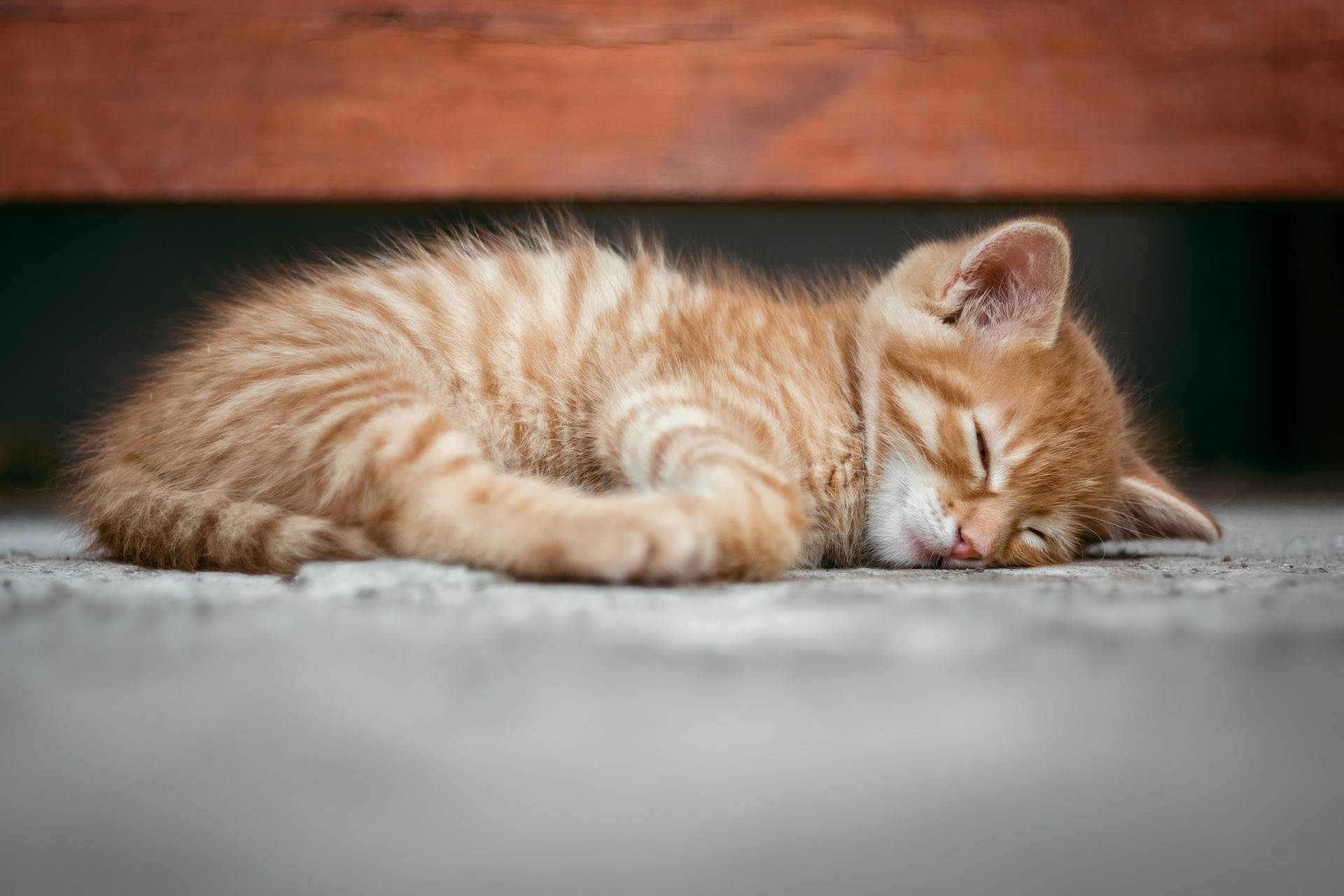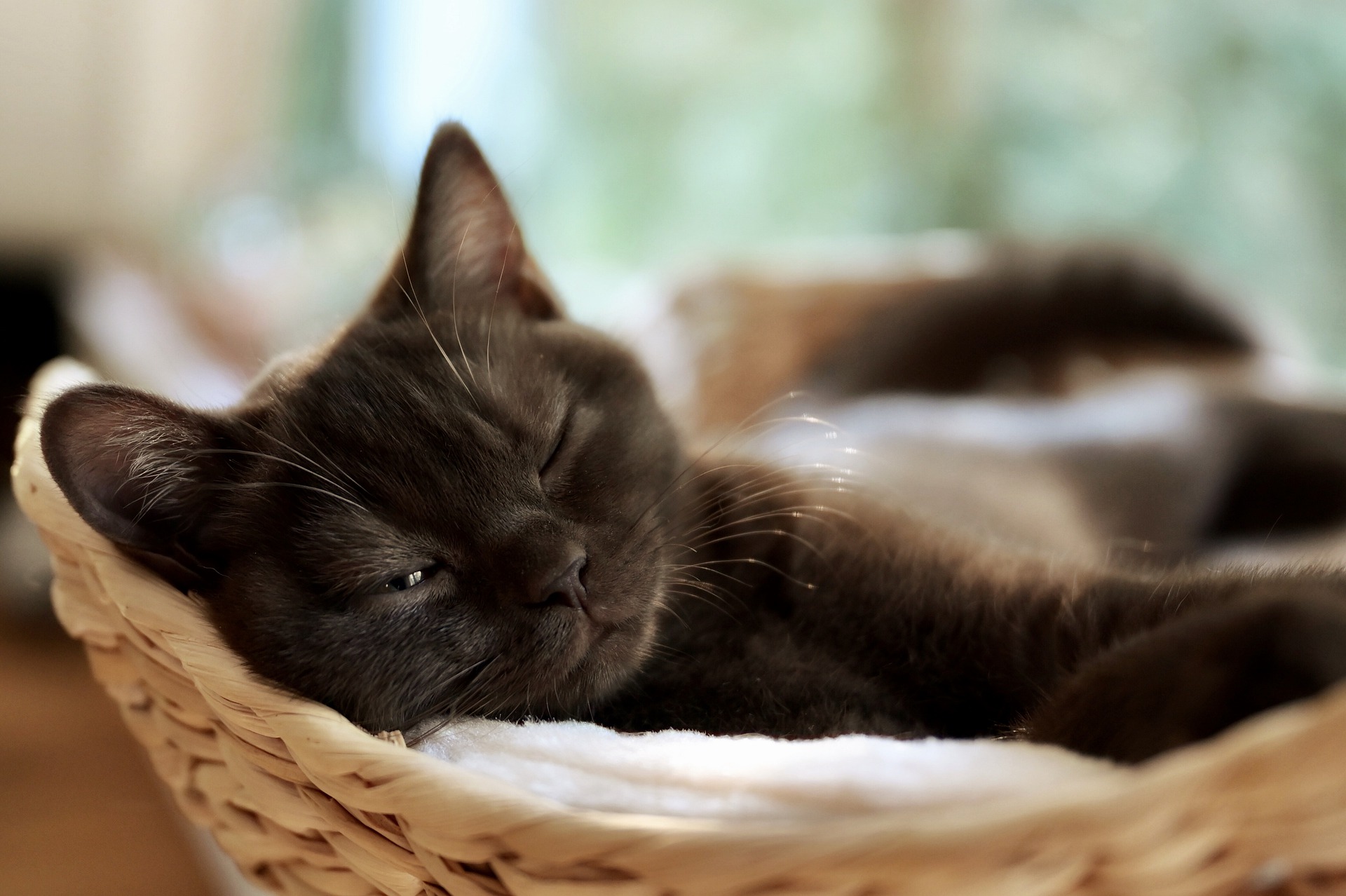Kittens are lively, playful, and full of energy — for about an hour. Then, they sleep, and they can seem to sleep all day long. If you think your kitten is sleeping more than he’s awake, you’d be right — kittens need lots of sleep when they’re quite young. But just how much sleep is enough, and how do you make sure your kitten is getting in enough naps? When you understand how sleep needs change as kittens age, you can keep an eye on your kitten’s sleep habits and even create an environment that helps him catch some z’s when needed so he’s well-rested and ready to play again.

How much do kittens sleep?
An all-day snooze is quite common for kittens, but the amount of sleep that your kitten needs varies. When kittens are newborns, they sleep for about 22 hours per day. They need that extra sleep to support their growing bodies.
As your kitten ages, his sleep needs will decrease, but kittens still tend to sleep a lot. Kittens who are about 6 months old will still sleep most of the time, averaging about 16 to 20 hours of sleep per day.
Sleep is important for all cats, but it’s particularly important that kittens get the sleep they need. Sleep supports multiple essential health functions for kittens. It boosts the immune system’s strength and helps your kitten conserve his energy for those crazy bursts of playfulness that you see.
How to help your kitten get the sleep he needs
When you adopt or buy a kitten, he’ll be in a strange environment and that can be unsettling. Your new kitten might not feel ready to settle in and take a nap, even when he needs it, but there are multiple ways you can help your kitten get enough sleep.
- Start by providing him with a safe place to snooze. A cat bed or even a cardboard box lined with a soft blanket is ideal. Many kittens enjoy beds with edges that they can snuggle against since it can create a sense of security. Make sure that the bed’s edges are low enough so that your kitten can easily get in and out, and put the bed in a warm, quiet spot.
- Keeping your kitten’s essentials nearby can help him feel safe in his new space. Position his litter box close by and keep some toys and food and water dishes near his bed. Kittens tend to play, eat, and then quickly settle in for a nap, so a conveniently located bed will encourage your kitten to doze.
- When your kitten does sleep, make sure that your family — kids and other pets, too — leaves him alone. Teach your kids that your kitten is off-limits while he’s asleep, and consider installing a pet gate or other barrier to keep other pets away from the kitten during nap time.

How to help your kitten sleep through the night
While your kitten might sleep for hours during the day, it’s also possible that he’ll wake up at night. You’ll need to help him get on your family’s sleep schedule, teaching him that nights are for sleeping, too.
To get your kitten to sleep through the night, try to keep him entertained and awake during the day a bit more. Make play sessions longer during the day, and give your kitten one long play session right before it’s time for bed at night. That playtime can help tire him out, encouraging him to sleep longer. You might also try feeding your kitten his last meal a little bit later since he’ll be inclined to sleep as he digests it.
Kittens need lots of sleep, and their sleep schedules can vary for a while. As your kitten ages, it will be easier and easier to get him on track with the whole family’s nighttime schedule. Establishing a routine can encourage him to go to sleep at night, and it also helps him get the sleep he needs to support his growth and his health. If you have questions about how much your kitten is sleeping — particularly if his sleep habits suddenly change, or he’s suddenly sleeping all the time — then talk to your vet. Lethargy can be a sign of health issues in kittens, and it’s important to get your kitten seen by your vet right away, just in case there’s something wrong.
Editors' Recommendations
- How to tell if your cat is a Maine Coon mix (and why you should care)
- When do kittens’ eyes change colors? The answer is so cool – here’s what to know
- Why do cats like to sleep on the bed with people? This common behavior explained
- Why you should feel honored if your cat sleeps at your feet
- What you need to know about your cat’s swollen lip – what caused it and how to help it heal



